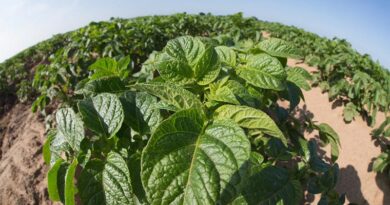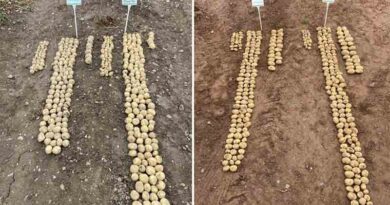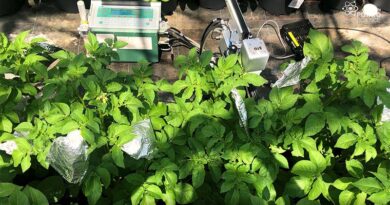Keys to help crops against extreme temperatures
12 May 2023, US: Longer and more frequent periods of extreme heat subject plants to more persistent abiotic stress. Today, thanks to biotech breakthroughs applied to agriculture, there are biological products that help crops mitigate the effects caused by extreme temperatures.
The heat waves of the past few years have led to the highest temperatures in several places around the world since records began. It’s a phenomenon that’s here to stay as a result of climate change and it negatively affects people, animals and plants.
When it comes to crops, the effects of heat are closely linked to drops in yields as a result of the physiological and metabolic stress caused to crops. Very high temperatures above 40ºC can lead to crops going into metabolic arrest. This metabolic arrest prevents the translocation of nutrients, which has a huge negative impact on the development of fruits, greatly reducing their potential to reach marketable size grades. It is estimated that an increase of 1ºC in annual average temperature can lead to a 4–10% decrease in crop yields.
If you’re not familiar with the term “abiotic stress”, it consists of environmental factors that alter the physiological, morphological and biochemical processes of crops. Among these abiotic factors, the one that has the greatest impact on plant stress is temperature—both high and low temperatures.
Nevertheless, farmers have biological solutions at hand to mitigate the effects of extreme heat and cold on their crops. Do you want to discover what they are? Keep on reading!
BIOLOGICAL SOLUTION FOR HIGH TEMPERATURES
In this context, growers across the globe are adopting agricultural practices to mitigate the effects of high temperatures such as improving water management and using innovative technologies.
This is where Symborg plays an important role. As we are cognizant of the challenges facing producers, we offer biotechnology as an alternative.
With biological solutions developed from microorganisms and biomolecules, we help ensure the productivity and profitability of crops in a sustainable and respectful manner towards the environment, even in adverse conditions.
Among the solutions we propose are biostimulants based on the exclusive arbuscular mycorrhiza-forming fungus (AMF) Glomus iranicum var tenuihypharum. This fungus, exclusive to and patented by Symborg, establishes a long-lasting symbiotic relationship in which the fungus exchanges water and nutrients with the plant in return for sugars produced during photosynthesis.
Thanks to this symbiotic relationship, the plant’s stomata open for longer, even in extreme conditions, which means that the plant can continue completing its metabolic cycles and increasing the size of its fruits.
An example of a crop that has benefited from the results of Glomus iranicum var. tenuihypharum is the early melon in Murcia, Spain. In this crop, we observed a 19.5% increase in yields, a 17% increase in the 63–73 mm size grades and a 3% increase in the 73–80 mm size grades. All of this took place despite the adverse soil and climatic conditions in the area: high summer temperatures, soils with an electrical conductivity of 4 dS/m (4 deciSiemens per meter) and a pH of around 8.
This way, crops become highly resistant, with greater tolerance to extreme temperatures, as well as other abiotic stresses such as droughts or high salinity conditions.
And that’s not all: crops also grow even more efficient—making the most of every last drop of water and every gram of nutrient—and even more profitable due to increased yields and improved fruit quality parameters.
MycoUp, MycoUp 360, Resid HC and Resid MG are our biostimulant solutions based on the Glomus iranicum var. tenuihypharum fungus, with which you can get all these benefits in your crops.
Also Read: Godrej Agrovet launches umbrella brand PYNA for sustainable cotton production
(For Latest Agriculture News & Updates, follow Krishak Jagat on Google News)















